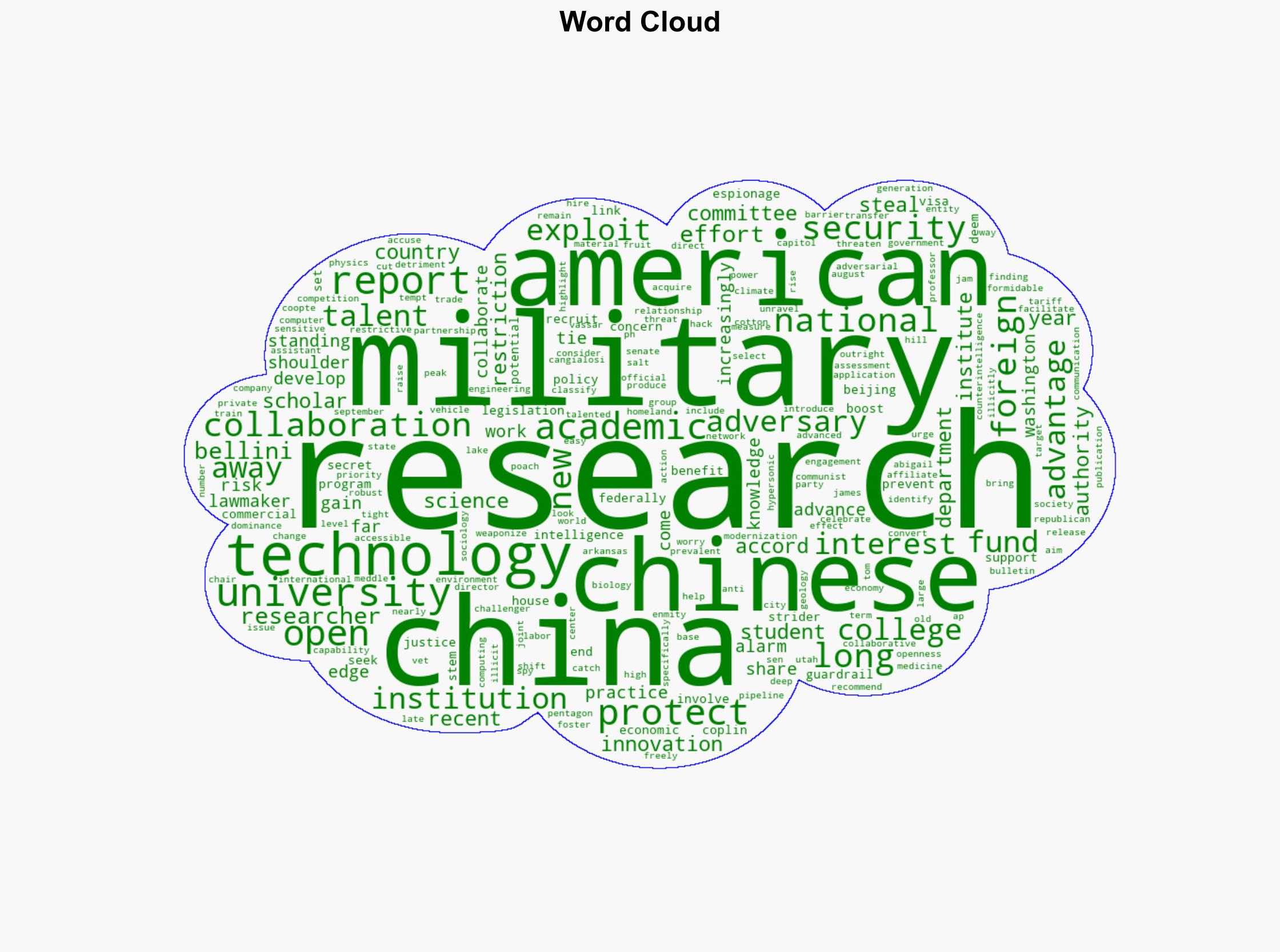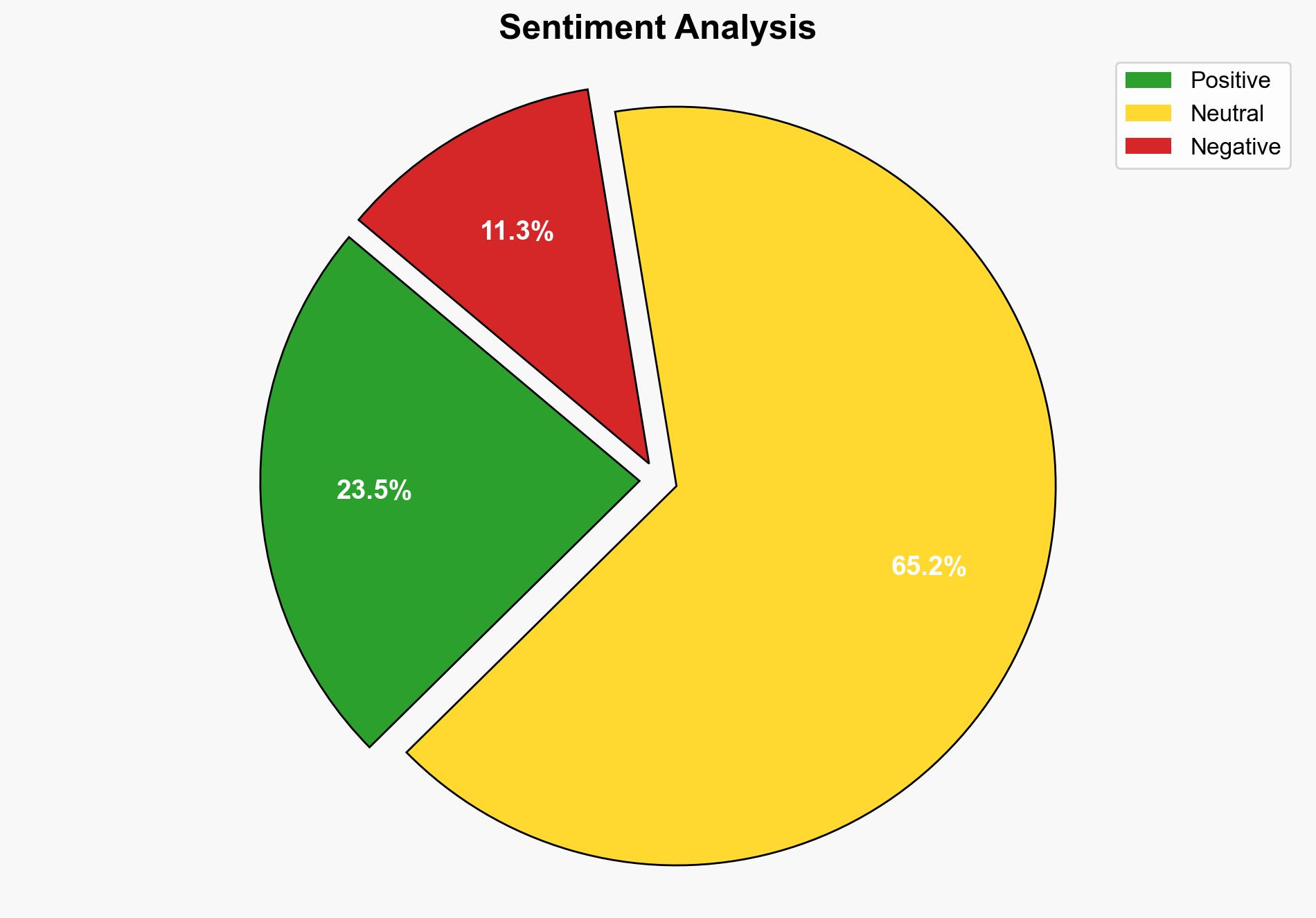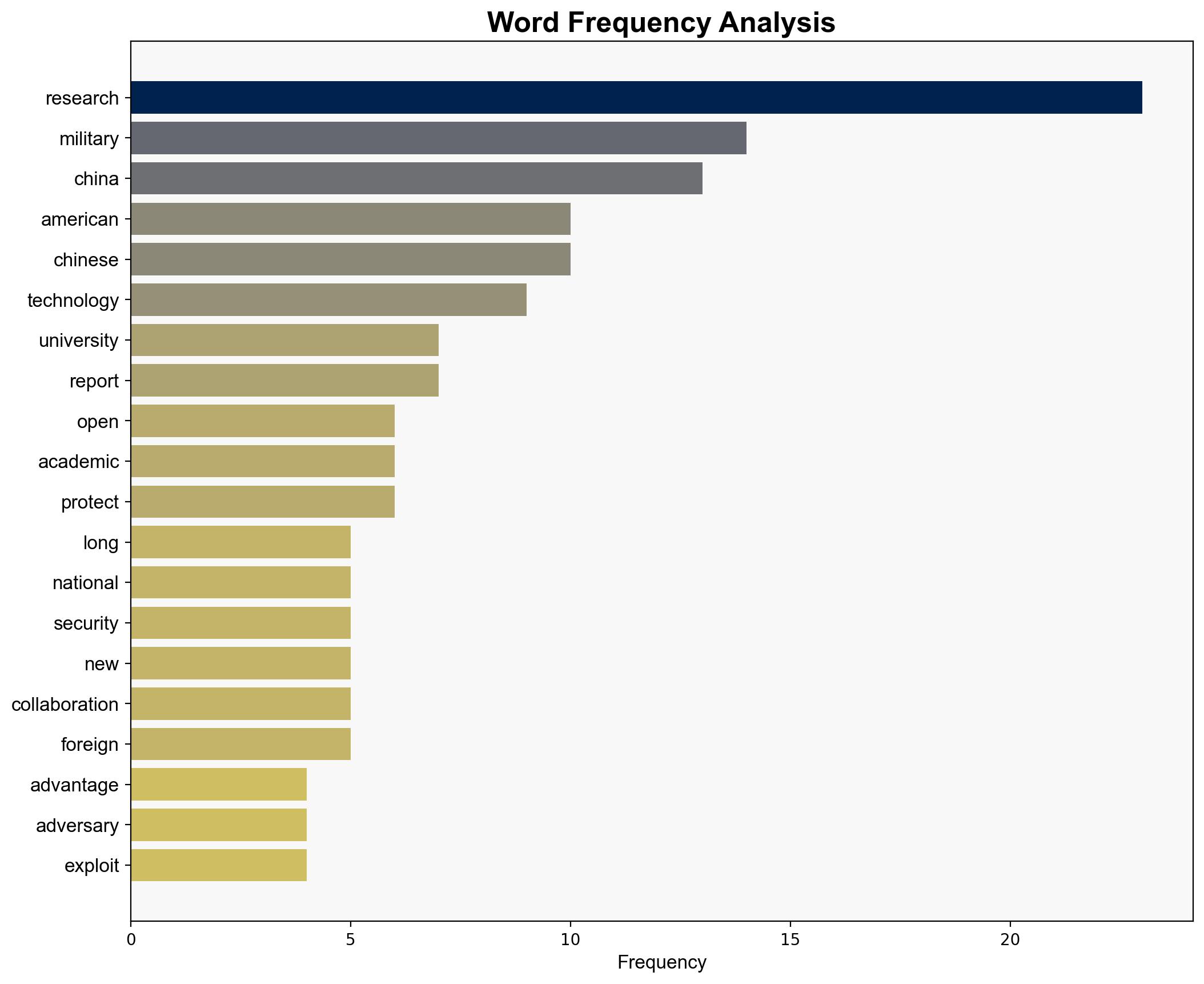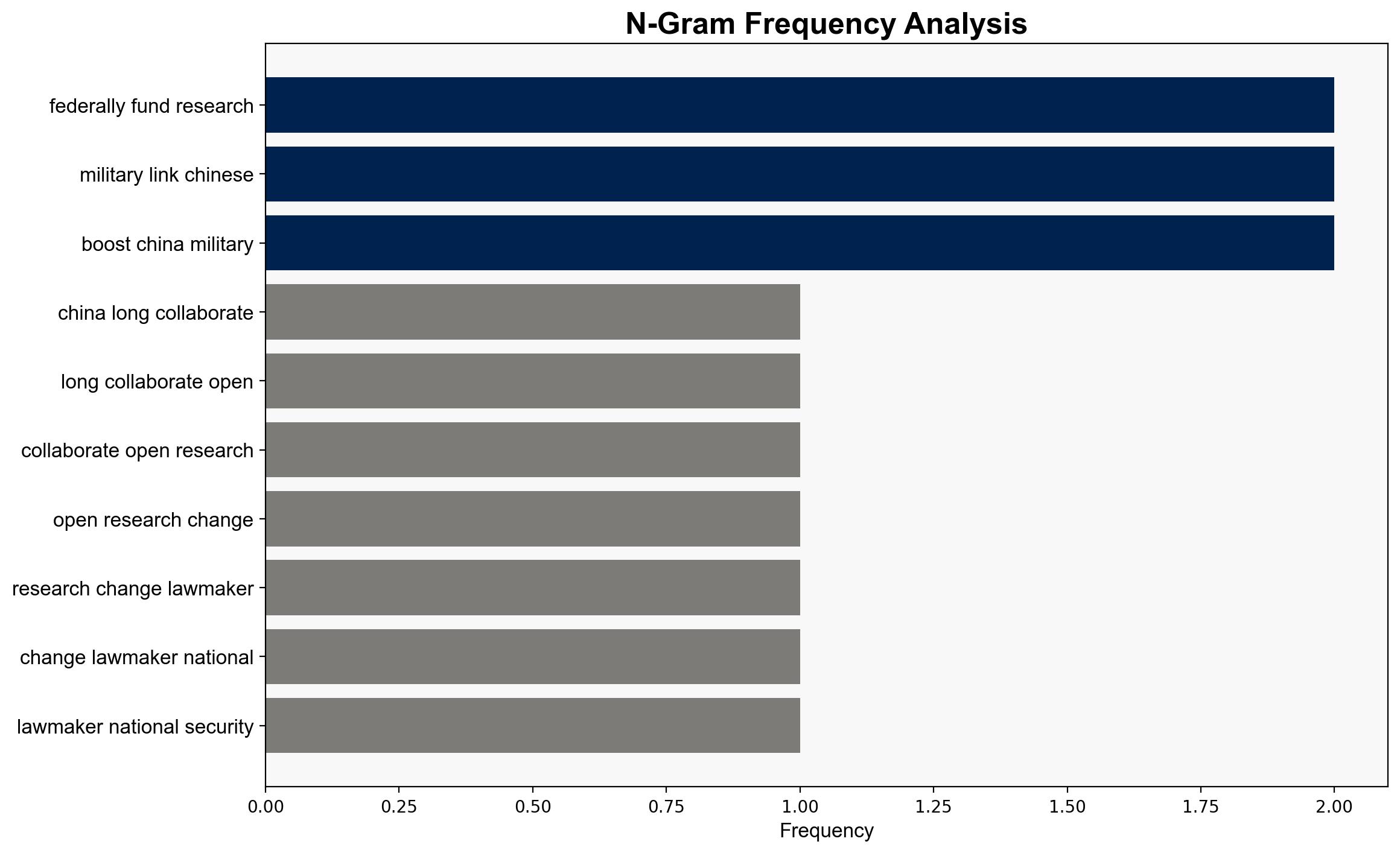China and the US have long collaborated in ‘open research’ Some say that must change – ABC News
Published on: 2025-10-14
Intelligence Report: China and the US have long collaborated in ‘open research’ Some say that must change – ABC News
1. BLUF (Bottom Line Up Front)
The strategic judgment is that the longstanding open research collaboration between the US and China presents significant national security risks, particularly in military technology domains. The hypothesis that China exploits these collaborations to advance its military capabilities is better supported. Confidence level: High. Recommended action: Implement stricter controls on research collaborations with Chinese institutions linked to military applications.
2. Competing Hypotheses
1. **Hypothesis A**: China is leveraging open research collaborations to enhance its military capabilities, posing a national security threat to the US. This hypothesis is supported by legislative actions and reports indicating Chinese military-linked institutions’ involvement in joint research.
2. **Hypothesis B**: The open research collaboration primarily serves academic and scientific advancement without significant national security risks. This hypothesis suggests that the benefits of knowledge sharing outweigh potential threats.
Using ACH 2.0, Hypothesis A is more supported due to consistent legislative concerns, documented instances of military-linked research, and strategic shifts in US policy towards China.
3. Key Assumptions and Red Flags
– **Assumptions**: Hypothesis A assumes that all Chinese institutions involved in research have military ties. Hypothesis B assumes that academic collaboration is inherently benign.
– **Red Flags**: The lack of transparency in Chinese institutional affiliations and potential underreporting of military linkages. The assumption that all research findings are equally accessible and beneficial.
– **Cognitive Bias**: Confirmation bias may affect the interpretation of Chinese intentions, leading to an overemphasis on threat perceptions.
4. Implications and Strategic Risks
– **Economic**: Restricting collaborations could impact scientific innovation and economic growth.
– **Cyber**: Increased risk of cyber espionage targeting sensitive research data.
– **Geopolitical**: Heightened tensions may lead to further decoupling of US-China relations, affecting global stability.
– **Psychological**: Erosion of trust in international academic partnerships could stifle global scientific progress.
5. Recommendations and Outlook
- Implement stringent vetting processes for research collaborations involving Chinese institutions.
- Enhance cybersecurity measures to protect sensitive research data.
- Scenario Projections:
- Best: Effective controls lead to secure collaboration, maintaining innovation while safeguarding national security.
- Worst: Over-restriction stifles scientific progress and exacerbates US-China tensions.
- Most Likely: Gradual tightening of controls with selective collaboration continues, balancing security and innovation.
6. Key Individuals and Entities
– Tom Cotton
– James Cangialosi
– Strider Technologies
7. Thematic Tags
national security threats, cybersecurity, counter-terrorism, regional focus




